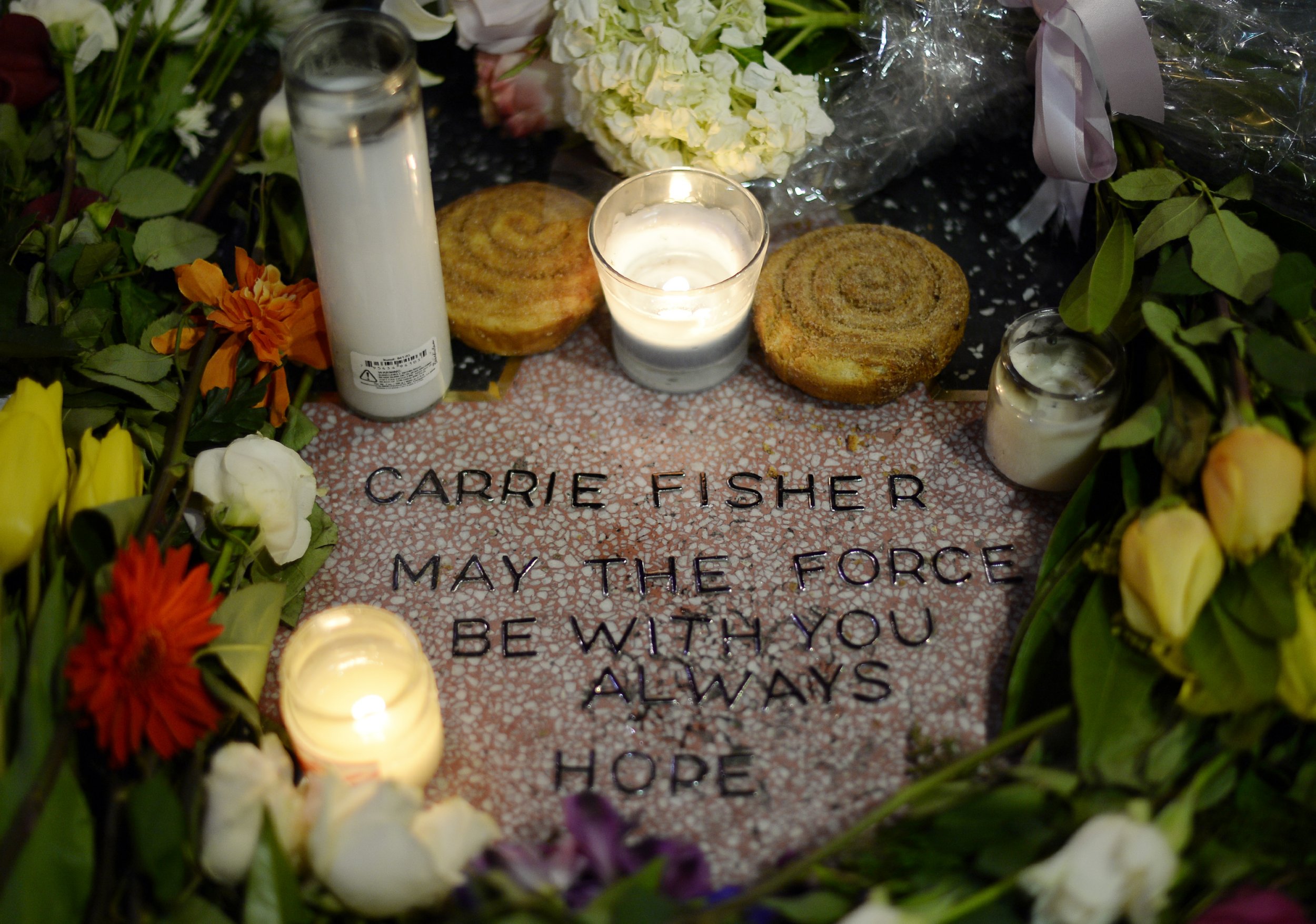
Six months after Carrie Fisher's sudden death, the Los Angeles County coroner has identified sleep apnea as a factor in the shock passing of the Star Wars actress.
Fisher suffered a cardiac event on a flight from London to Los Angeles on December 23, 2016, and died four days later in hospital. She was 60 years old. Just one day later, Fisher's mother Debbie Reynolds passed away.
The decorated actress was most famous for her role as Princess Leia in the Star Wars series. She was also well-known for romantic relationships with show business stars, including Harrison Ford, as well as a more troubled personal life, suffering from drug addiction in later life.
The coroner's office said it had performed a medical examination on Fisher's body three days after her death. It said that while the manner of her death was undetermined, sleep apnea played a role in Fisher's death. The office said that there were signs of "multiple drug intake" but that its significance was not established, according to a statement reported by CNN.
Read more: "Catastrophe" stars on Carrie Fisher's final scenes and how they'll handle her death
Sleep apnea is a common disorder where a sufferer's breathing is disrupted during sleep. These disruptions can last for a few seconds or minutes, according to the U.S. National Heart, Lung and Blood Institute. Apnea is a Greek word meaning "want of breath." An estimated 22 million people in the U.S. suffer from sleep apnea, with the vast majority of cases going undiagnosed, according to the American Sleep Apnea Association.
It's difficult to diagnose sleep apnea: there are no blood tests or obvious symptoms when the person is awake. It's most commonly detected by the sufferer's sleeping partner who may notice their bedmate briefly stop breathing while asleep and that breathing resumes with a snore or a choking sound.
The most common kind of sleep apnea is obstructive sleep apnea, where the airways collapse or become blocked during sleep. When the sufferer tries to breathe, the limited air that passes the blockage can result in loud snoring. It's more common in people who are overweight or who have obstructed airways, such as children with swollen tonsils.
Another, less common type of sleep apnea—central sleep apnea—can affect anyone and occurs when the brain fails to send the correct signals to breathing muscles during sleep, resulting in pauses in breathing.
If left untreated, sleep apnea can lead to a range of health problems. It can increase the chances of high blood pressure, heart attack, stroke, obesity and diabetes, and also worsen existing heart conditions. The condition can be treated by lifestyle changes—such as losing weight and cutting down on alcohol—and by the use of breathing devices during sleep.
While it's rare for sleep apnea to be a direct cause of death, the condition can appears to create a higher risk of mortality for sufferers. A 2008 study by researchers at the University of Wisconsin-Madison found that, over an 18-year period, people with severe, untreated sleep apnea died at a rate more than three times higher than that of those without the condition.
Uncommon Knowledge
Newsweek is committed to challenging conventional wisdom and finding connections in the search for common ground.
Newsweek is committed to challenging conventional wisdom and finding connections in the search for common ground.
About the writer
Conor is a staff writer for Newsweek covering Africa, with a focus on Nigeria, security and conflict.
To read how Newsweek uses AI as a newsroom tool, Click here.








